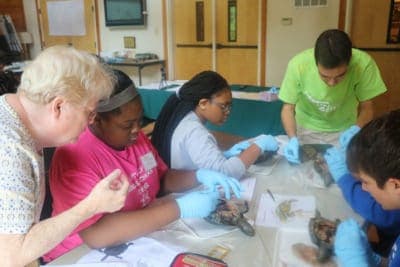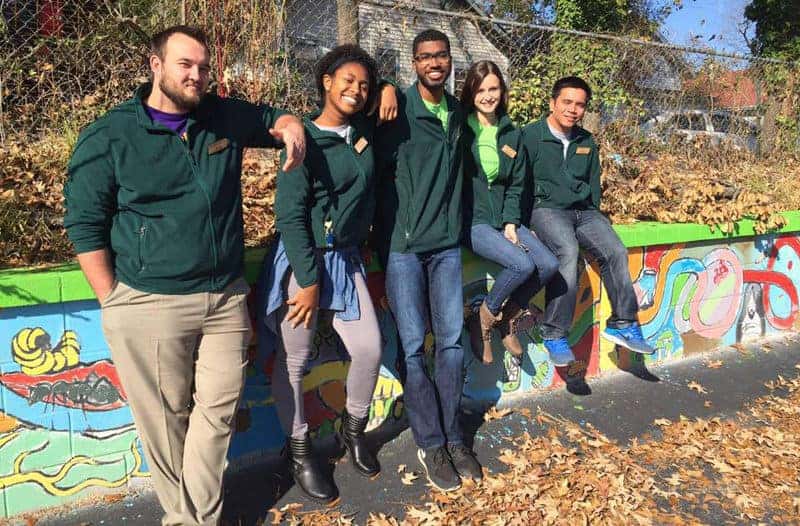

This series on internships is sponsored by the SECU Foundation.
Summer internships are expected for college students and more and more high school students. Many of you reading this will remember the triumph of landing your first internship, cobbling together professional wear, and trying to navigate interoffice politics as best as any 19-year-old can — often for no pay. These days, working 40 hours a week for free is prohibitive for many students who rely on summer job paychecks — and if their school or home is far from a city, a summer internship can seem impossible. The State Employees’ Credit Union Foundation has developed a fix for this issue: The SECU Public Fellows Internship.
The SECU Public Fellows Internship
Recognizing both the challenge and value in internships, in 2013, the SECU Foundation set out to create an internship platform that was more equitable and focused on rural communities. SECU partnered with the NC Rural Center to place undergraduate students in paid internships in their home counties — limited to the 85 designated as rural. The SECU Foundation would grant $2,500 to each intern, and the Rural Center would administer the program. Forty-seven students participated as interns in local government across the state “fostering community involvement and a new generation of rural civic leaders,” explains Dr. Marilyn Sheerer, University of North Carolina-Wilmington provost and SECU Foundation board member.
The program was a success, and in 2015, the SECU Foundation embarked on an extended pilot with three state universities. The University of North Carolina-Pembroke in Robeson County, Appalachian State University in Watauga County, and East Carolina University in Pitt County all were invited to submit proposals on how they would administer a paid internship program. By choosing these three universities, the Foundation hoped to offer a remedy to rural brain drain. “We need to see our young folks moving back to these areas,” said Jama Dagenhart, SECU senior vice president and executive director of the SECU Foundation. “We need leaders for the future.” After reviewing these initial proposals, the Foundation decided to grant $100,000 to each university: a $5,000 internship stipend for 20 students per school year to intern in public sector jobs.
In 2016, the SECU Foundation invited an additional six UNC schools to participate: Elizabeth City State, Fayetteville State, UNC-Wilmington, Western Carolina, and Winston-Salem State. To date, the Foundation has invested $1.19 million in this venture. The goal of the SECU Public Fellows Internship, according to a 2016 foundation press release, is “to help build capacity in underserved rural communities and generate student interest in job opportunities close to home.”
For this series, EducationNC conducted 17 interviews with SECU Public Fellows Internship program administrators and students, driving 1500 miles across North Carolina to begin to understand its impact.
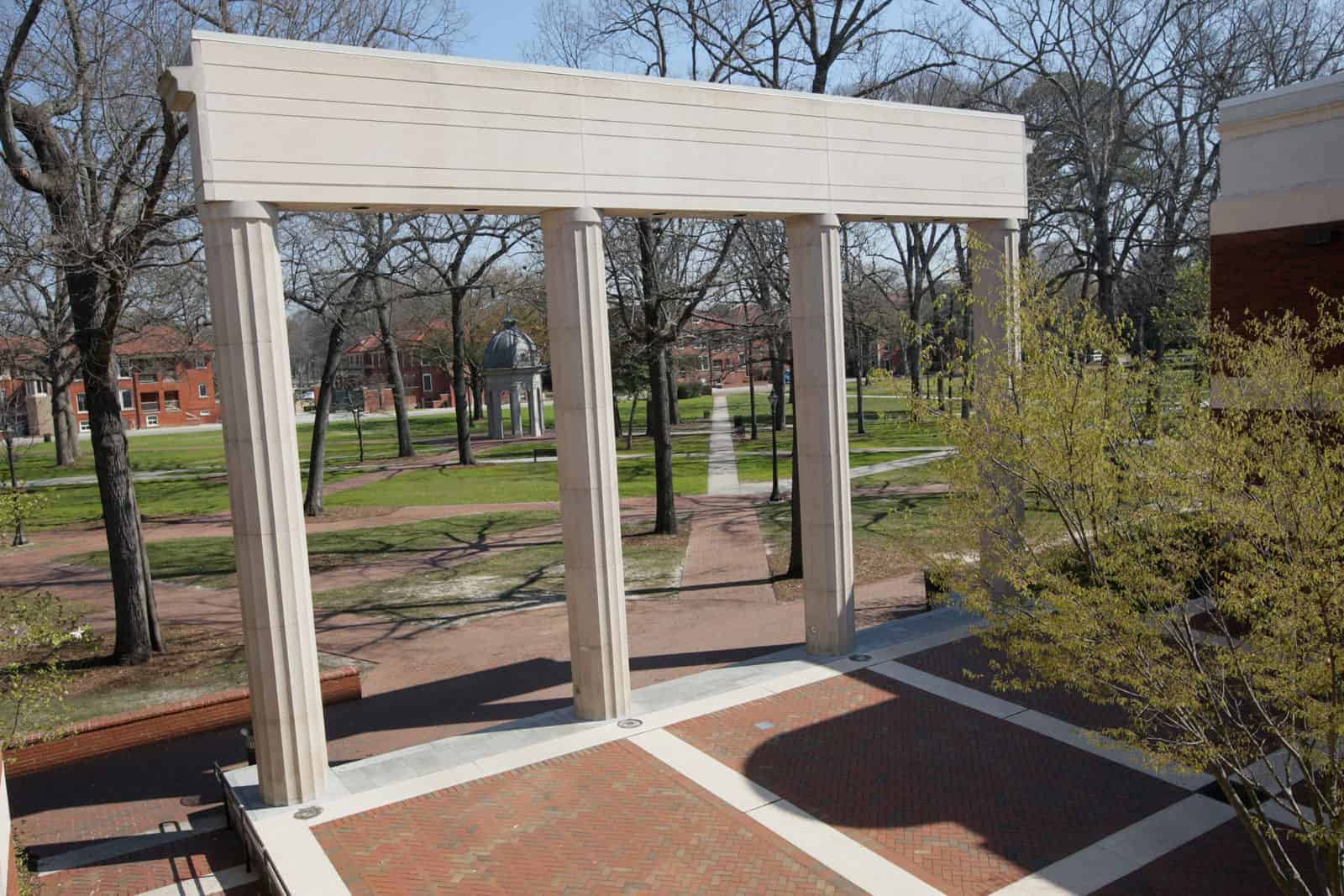

Dr. Sharon Paynter, assistant vice chancellor for community engagement at East Carolina University, was integral in establishing the SECU Public Fellows Internship at ECU. Paynter leads the Office of Community Engagement and Research, which is housed within the Division of Research, Economic Development, and Engagement. Paynter has experience in public administration from both the theory and practice side — and for her, the SECU interns program had a degree of personal relevance too.
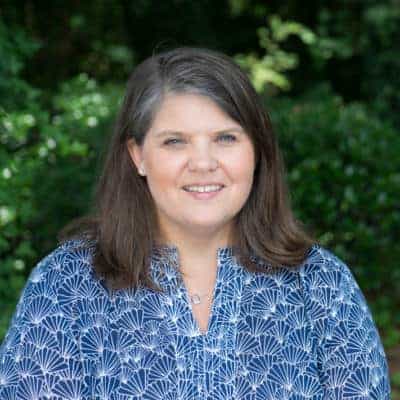

“I’m from Henderson, in Vance County, so I really understand what it is to live in a small town,” shared Paynter. “I can see how important it is that college students do go back to small towns where they are going to have opportunities for impact.”
Paynter designed the SECU Public Fellows Internship at ECU from a “community design perspective.” In other words, Paynter lets the needs of the community guide the type and format of internships. She asks community partners—local government agencies and non-profits, mostly—to write a proposal for hosting an intern that includes writing a job description. An ECU committee approves sites that will offer a meaningful professional experience. From this pool, students can apply to multiple opportunities, each site will interview and rank potential interns, and once matched with a site, the interns are paired with faculty advisors. Now in its third year, 58 ECU students have been through the program. “We’ve been building to the point that we now have more site proposals than we have opportunities,” said Paynter.
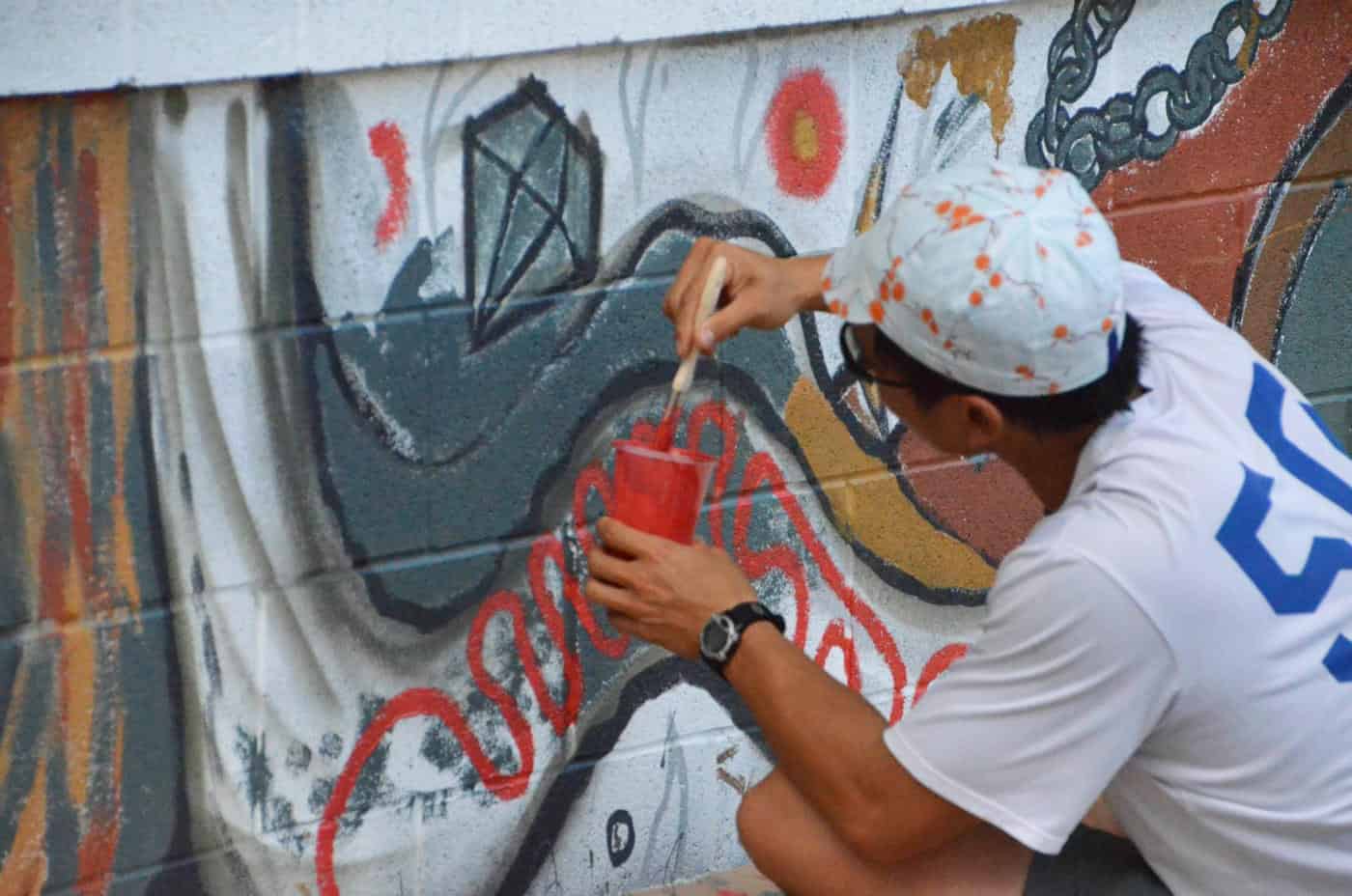

ECU fellows have worked in a variety of organizations that serve rural communities. Janae Brown was nominated to join the first cohort of interns in 2015. Brown is from Raleigh, and her parents met in athletics at ECU. Her high school had a graphic design program, and Brown decided to pursue a design major. “My goal — up until the last semester of college — was to become creative director for ESPN,” said Brown. But first, as she explained, “I had to figure out how to get there. Having an internship was critical to honing my career aspirations and for me to realize that eventually I want to own a design firm after continuing to develop professionally. Design is just not a field that you see black women in. After my internship experience, I learned that small firms can have an important impact at the community level. That is where I want to go now.”
“Stay the course. When you get to the end, you’ll see how much you have grown, and how [internships] can make you better at what you are trying to do. The second thing is—because I think this is important—you have to learn how to follow before you can lead.”
—Janae Brown

Brown’s internship was with Emerge Art Gallery + Center, home of the Pitt County Arts Council in Greenville. During her internship, Brown supported Emerge’s marketing needs. While she was an intern, she also participated in an “Art + Community” research project under Kate Bukoski, director for ECU’s School of Art and Design. This included research into the connections between art in communities and crime, and throwing a community block party that included mural painting. “If there is art and there is community and you’re coming together to do one thing, it does reduce crime because you are looking out for your neighborhood,” explains Brown.
As an intern her junior year, Brown learned how to apply her skills in a professional setting. During her senior year, Paynter hired her as a student designer for the Office of Community Engagement and Research and Brown served as vice president of the ECU Student Government. A week after graduating, Brown was hired as a visual arts specialist at ECU. “It showed me that okay, I’m pushing to make these changes and open the doors to the unseen,” said Brown. She continued, “Now the challenge is taking all that I learned from being a student into my professional role.”
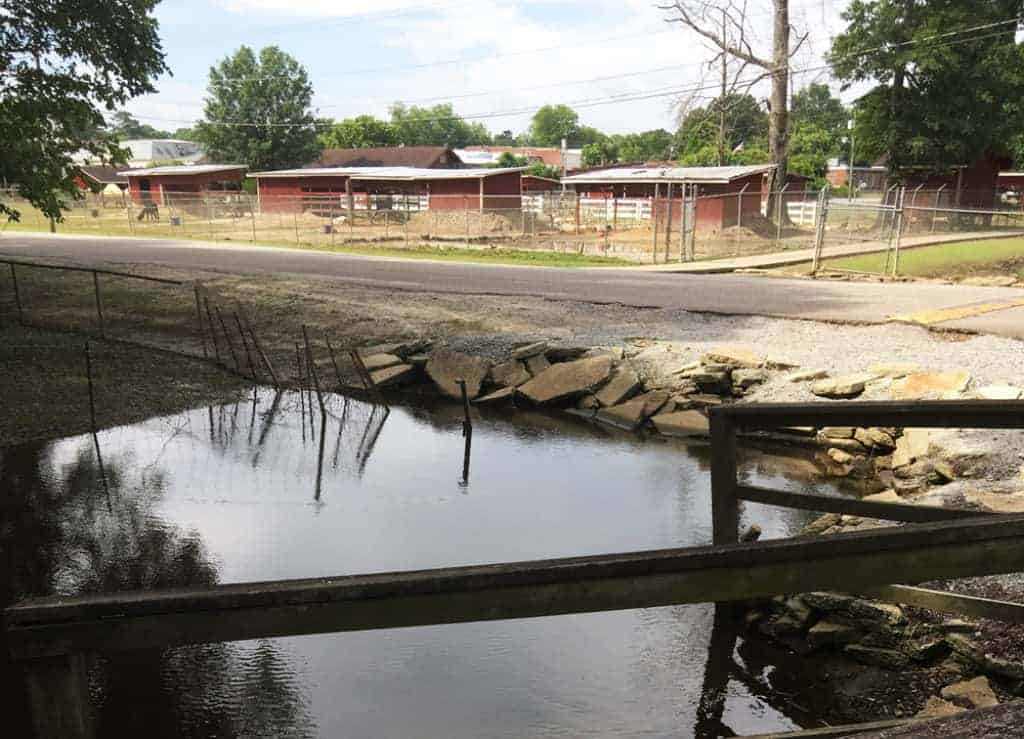

Kenneth Staton of Greenville was an intern with the Windsor-Bertie County Chamber of Commerce this summer. Working towards a major in urban and regional planning and a minor in leadership studies, Staton wants to empower communities in the development process — but he had never pictured himself working in a rural setting. “I’ve always thought that low-income or at-risk only meant urban communities. I never thought about rural communities. Going to Bertie County blew my mind on a totally different level,” explained Staton. Between assisting with events, site visits, inter-county development meetings, and writing, Staton also learned how to organize his life around a full-time job. “This internship helped establish how I need to function,” said Stanton. “It definitely helped prepare me for the long haul.”
Without the $5,000 internship stipend, William Zahran of Fayetteville would have probably worked on his senior thesis while making money on the side as a waiter. Instead, with SECU Foundation support, he helped develop and execute the Soaring Into Science summer camps for rising ninth graders at Sylvan Heights Bird Park in Scotland Neck.
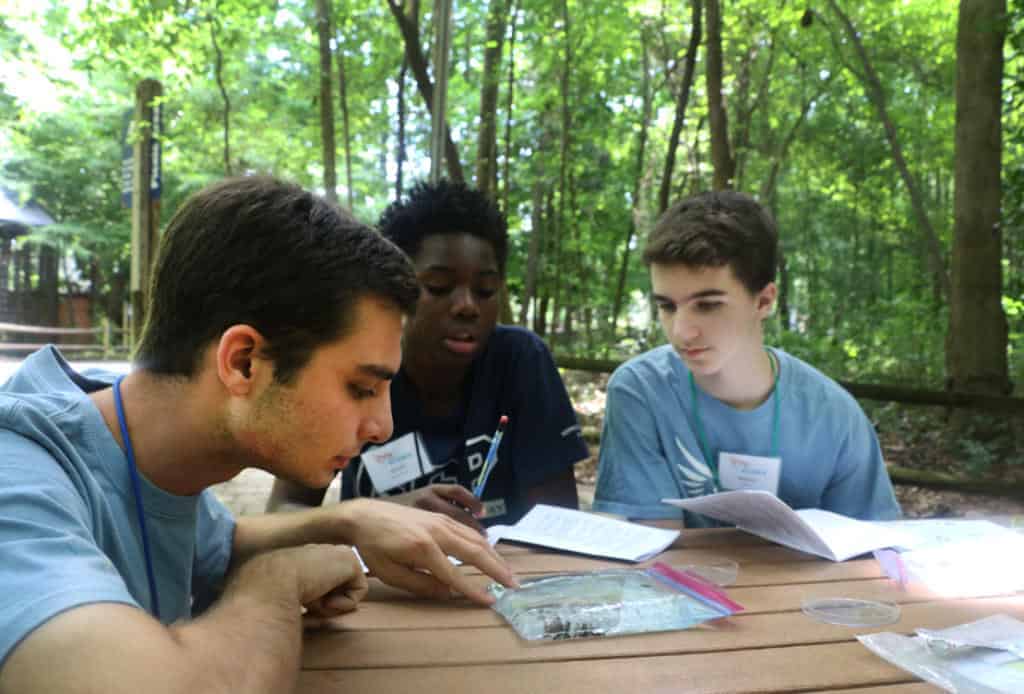

“This internship has had a huge impact on how I’m looking at next year. I originally said I’d go into grad school and do ecology research, or something like that. After this, I really have taken a step back and maybe a graduate degree in education or science education may be more right for me,” said Zahran.
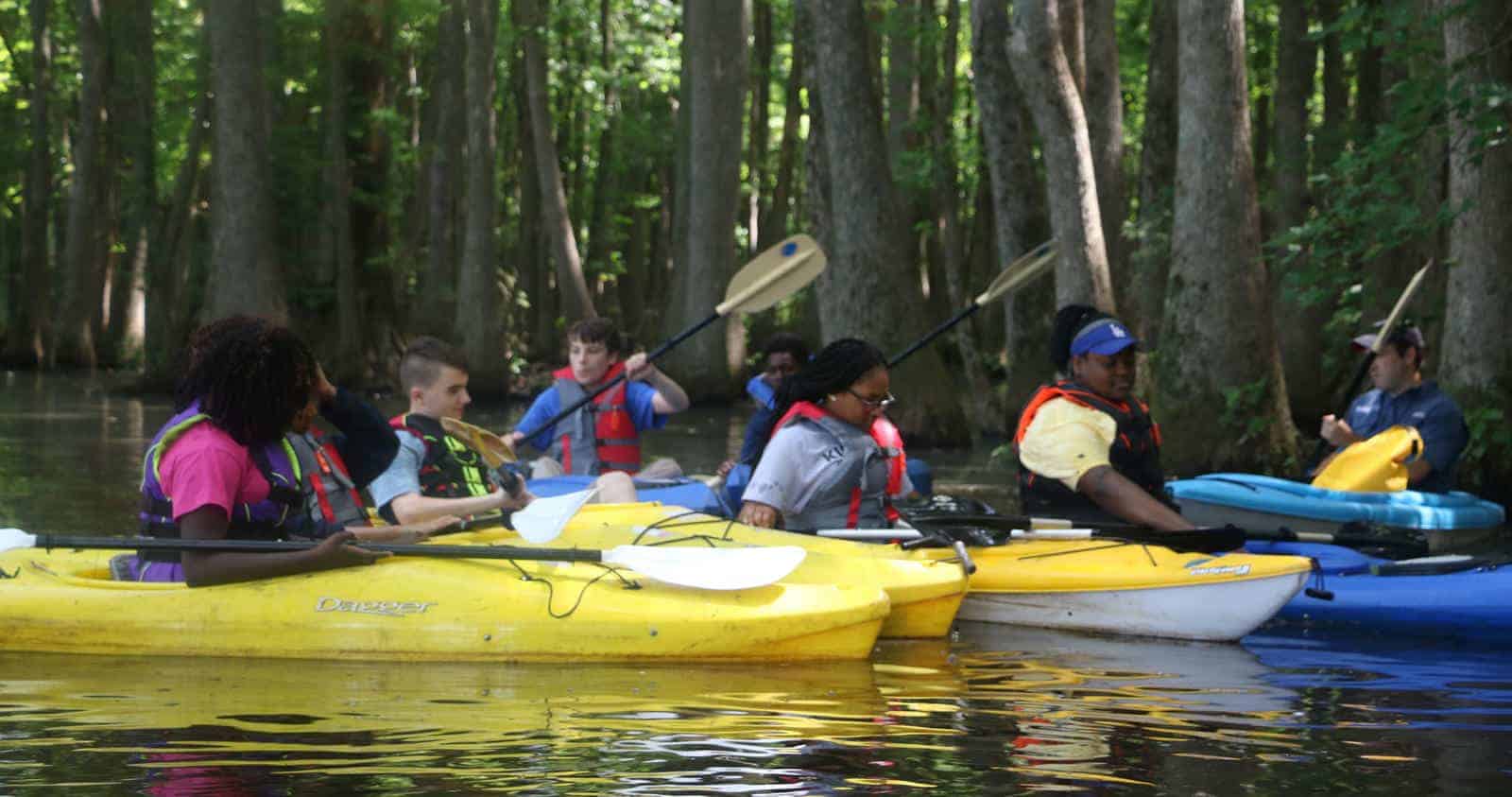

2017 marks the third year ECU has administered the SECU Public Fellows Internship. Paynter and her committee manage the site proposals and student applications process, a faculty mentor is assigned to each student intern, and the interns are brought together as a cohort three times to get to know one another and consider the role of public service in their lives.
For the first time this fall, Paynter is also helping to organize a professional development workshop where students can work on their communication skills and resumes. As she prepares for next year, Paynter is considering how to run the internship program more efficiently, how to best track students after they graduate, and how to connect with local SECU branches.
“I get 20 students a year who are well prepared to go into communities and make a difference,” says Paynter. “It’s pretty hard to see that as anything but valuable.”
SECU Public Fellows Internship
East Carolina University, Summer 2017
- Elizabeth Andrews, Pitt Co. Schools-Athletic Training
- Lily Bagwell, Pirate’s Cove Fishing Tournaments, INC.
- Carrie Brickhouse, The Pocosin Arts School of Fine Arts
- Jessica Brush, Rebuilding Together Pitt Co.
- Michael Denning, Pitt Co. Health Department
- Todd Gabriel, JH Sampson Community Development Corporation, INC.
- Sarah Goski, Pitt County Arts at Emerge
- Alexander Hill, Tyrell Co. Soil & Water Conservation District
- Emily Hurdle, AMEXCAN
- Rachel Isaac, Arts of the Pamlico and Historic Turnage Theatre
- Eva Maldonado-Sanchez, Greenville Recreation and Parts Department
- Nick Marple, Greenville Museum of Art
- Rhyan McDowell, Aces for Autism, INC.
- Lucero Roa, Building Hope
- Kenneth Staton, Windsor/Bertie County Chamber of Commerce
- Holly (Bell) Tabor, Eastern Carolina Vocational Center
- Chase Taylor, Pamlico Rose Institute of Sustainable Communities
- William Zahran, Sylvan Heights Bird Park
Here is more information about SECU Foundation.
You can follow secu_foundation on Instagram.


